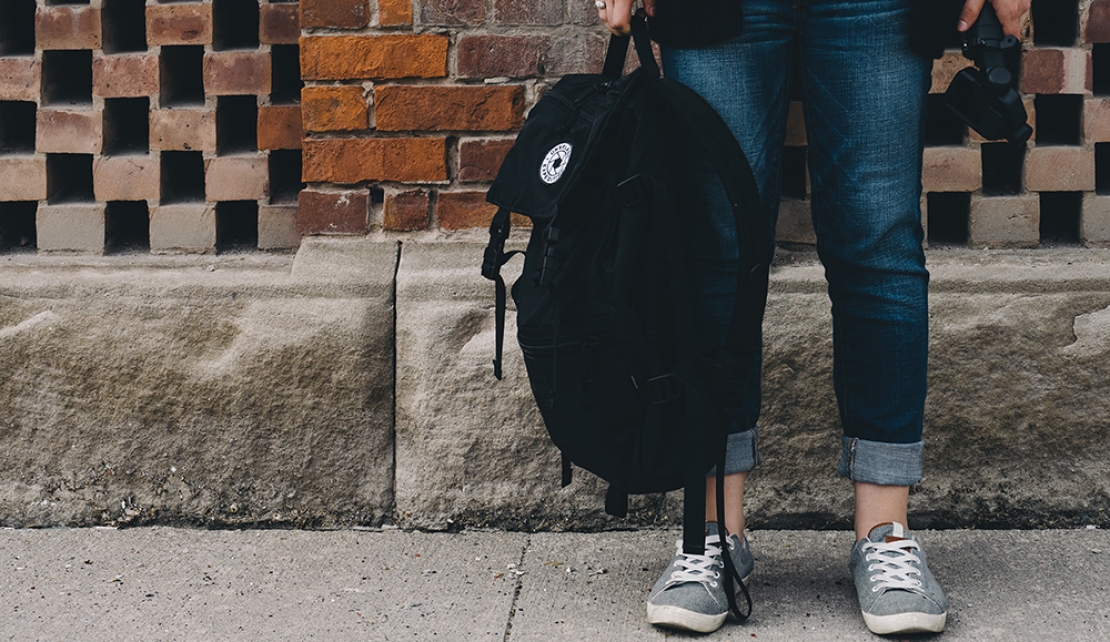Ben’s story stands out as one that demonstrates that what he has learnt from many very hard and painful experiences have different ways of presenting themselves. While he isn’t suggesting we should describe all trauma as being a way to build resilience, he does touch on a range of invaluable qualities he has gained from his experience as a carer and a family anchor at such a young age. He also links his creative and theoretical skills to a lot of material he needs to express - material that is hard to talk about. Recognising Ben’s abilities means acknowledging what he has had to manage during his life - in a way that he can use and showcase rather than bury or hide.
Ben is 19 and working towards his year 12 certificate, having left the mainstream school system because he could no longer put up with unbearable bullying or being put on detention for things like ‘wearing the wrong shade of socks’.
While he recognises such forms of punishment as trivial, he is also honest about the impact that mainstream learning can have when you are struggling with mental health on top of having huge responsibilities like caring for a younger sibling, without adequate financial or emotional support. ‘I have not ever stayed in one place for a very long time.’
After several attempts at attending different schools, Ben took a break from school for two years. It was all too much. Rather than dreaming about his future life like other young people he was really ‘just getting by’ and was certainly not in a position to be thinking about what his career options or future study options could be.
While he was very concerned he would never get back to school following such a long break, after some research he found a different school environment where ‘the teachers are people that would sit down with you and go through the work with you and actively make sure you understood it rather than just moving on.’
‘Mainstream don’t tailor or cater much. It’s more about being criticised for not being able to work in a certain environment and do certain things. They don’t acknowledge all you can do. And mental health doesn’t get taken seriously enough.’
When describing all the things Ben can do, the reality is he is doing a lot more than most people his age. And he seems to know deep down these things make him unique. He is an avid reader. He reads and re-reads books. He likes the comfort of knowing what will happen the second time around. He also paints and draws. He finds it’s easier to express some things visually rather than with words. But he also likes theory. He also knows he is now in a position as the main carer for a child.
His new school acknowledges many of these things because ‘many of the teachers and students have not had the easiest of lives’. Ben feels like other people at the school have had similar experiences to him. And he says everyone has had difficulties with mainstream learning. He describes a community where he feels respected and included, rather than left out and traumatised.
Ben’s younger brother is only 9 and now that their older brother has left home, Ben has taken on all of the responsibilities that come with running a house. Although both boys live with their mum, Ben is quick to assert he provides the parental role.
The thing is, Ben is well aware that not everyone has so many responsibilities at such a young age. Other people have more choices. And more time and energy to spend on learning or just being a kid. ‘People from a higher class don’t have the understanding of what it’s like to go without. To go from the bottom and make your way up. I realised recently that I am more of a parental figure than my mum.’’
While Ben knows that many of the life skills and empathic qualities he has acquired will go towards preparing him for the workforce he says ‘being a kid is the time to be a kid and you should not be worrying about what work will be like yet.’
Ben says he has looked into different learning pathways but they rarely seem connected.
When asked to suggest where he thinks he might head he comments: ‘Personally I am definitely hands on – a very practical person. I want to look into ordinary work and also want to do something with art’.
Recognising Ben’s learning journey means recognising his courage, his determination, his motivation, his analytical skills, his ability to really get to know something, or someone, his empathy and care skills, his creative and theoretical abilities and his willingness to self-care, and ask for help when he needs it. This is recognition at its best when a young person has done so much and has so much to give.



